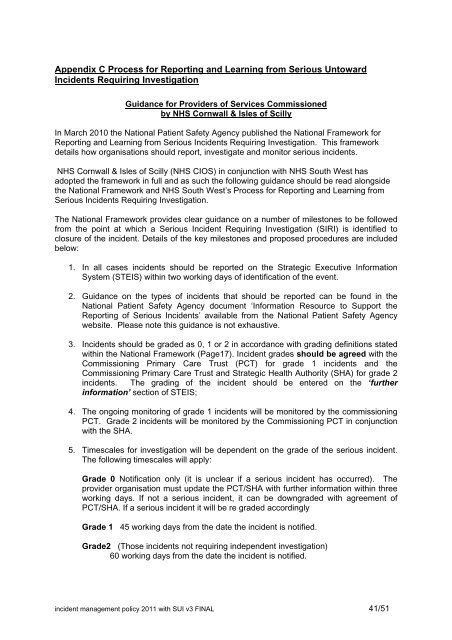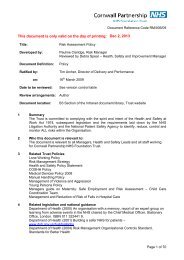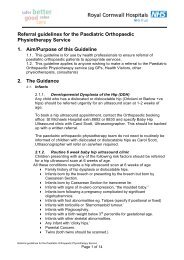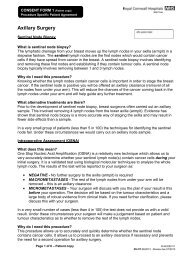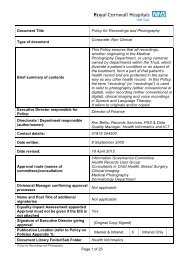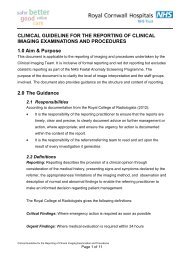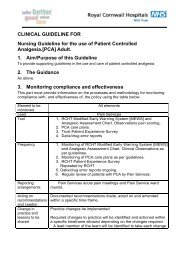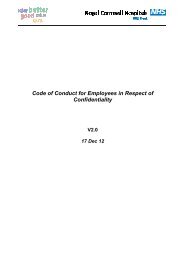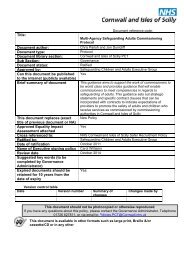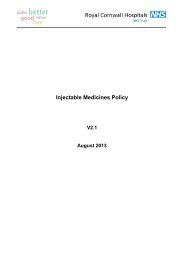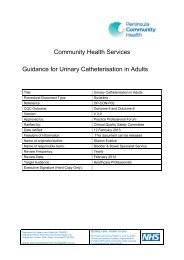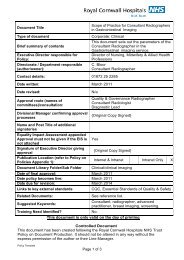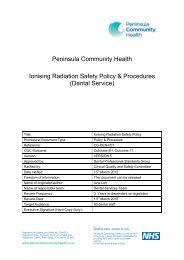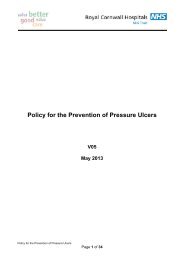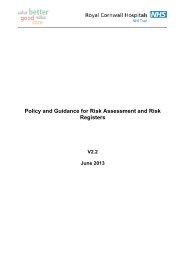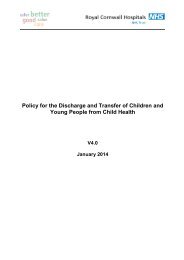Incident Management Policy Including Serious Incidents Requiring ...
Incident Management Policy Including Serious Incidents Requiring ...
Incident Management Policy Including Serious Incidents Requiring ...
You also want an ePaper? Increase the reach of your titles
YUMPU automatically turns print PDFs into web optimized ePapers that Google loves.
Appendix C Process for Reporting and Learning from <strong>Serious</strong> Untoward<strong>Incident</strong>s <strong>Requiring</strong> InvestigationGuidance for Providers of Services Commissionedby NHS Cornwall & Isles of ScillyIn March 2010 the National Patient Safety Agency published the National Framework forReporting and Learning from <strong>Serious</strong> <strong>Incident</strong>s <strong>Requiring</strong> Investigation. This frameworkdetails how organisations should report, investigate and monitor serious incidents.NHS Cornwall & Isles of Scilly (NHS CIOS) in conjunction with NHS South West hasadopted the framework in full and as such the following guidance should be read alongsidethe National Framework and NHS South West’s Process for Reporting and Learning from<strong>Serious</strong> <strong>Incident</strong>s <strong>Requiring</strong> Investigation.The National Framework provides clear guidance on a number of milestones to be followedfrom the point at which a <strong>Serious</strong> <strong>Incident</strong> <strong>Requiring</strong> Investigation (SIRI) is identified toclosure of the incident. Details of the key milestones and proposed procedures are includedbelow:1. In all cases incidents should be reported on the Strategic Executive InformationSystem (STEIS) within two working days of identification of the event.2. Guidance on the types of incidents that should be reported can be found in theNational Patient Safety Agency document ‘Information Resource to Support theReporting of <strong>Serious</strong> <strong>Incident</strong>s’ available from the National Patient Safety Agencywebsite. Please note this guidance is not exhaustive.3. <strong>Incident</strong>s should be graded as 0, 1 or 2 in accordance with grading definitions statedwithin the National Framework (Page17). <strong>Incident</strong> grades should be agreed with theCommissioning Primary Care Trust (PCT) for grade 1 incidents and theCommissioning Primary Care Trust and Strategic Health Authority (SHA) for grade 2incidents. The grading of the incident should be entered on the ‘furtherinformation’ section of STEIS;4. The ongoing monitoring of grade 1 incidents will be monitored by the commissioningPCT. Grade 2 incidents will be monitored by the Commissioning PCT in conjunctionwith the SHA.5. Timescales for investigation will be dependent on the grade of the serious incident.The following timescales will apply:Grade 0 Notification only (it is unclear if a serious incident has occurred). Theprovider organisation must update the PCT/SHA with further information within threeworking days. If not a serious incident, it can be downgraded with agreement ofPCT/SHA. If a serious incident it will be re graded accordinglyGrade 1 45 working days from the date the incident is notified.Grade2 (Those incidents not requiring independent investigation)60 working days from the date the incident is notified.incident management policy 2011 with SUI v3 FINAL 41/51


